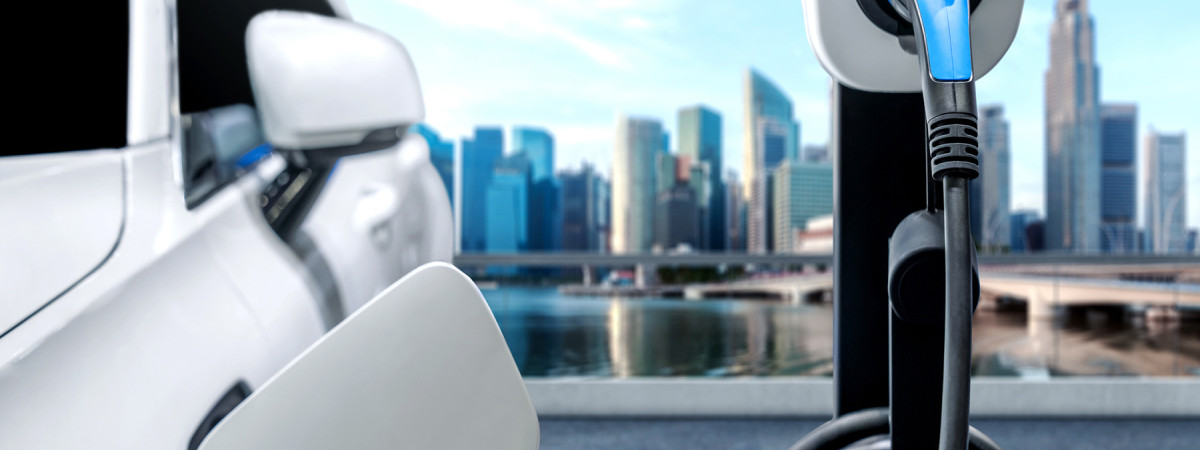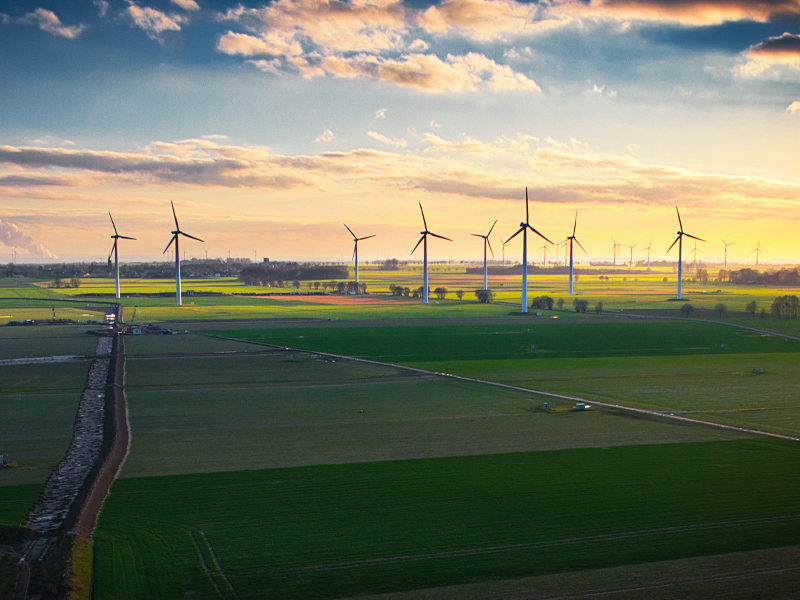
Photo by Ralf Hahn on iStock
Authors
-

Director, Transformation, BSR
-

Global Lead, Human Trafficking and Forced Labor, BSR
-

Associate Director, Transformation, BSR
Overview
Global commitments to reduce emissions have led to increased regulation to phase out petrol and diesel cars, spurring on demand for electric vehicles (EVs)—and raising the question of how this demand will be met. Chinese companies are expanding into established and emerging markets for EV products and components, propelled by their access to critical minerals, production capacity, and investments in innovation. While this expansion could help accelerate decarbonization globally, it raises questions about how the EV market will develop, from circularity infrastructure and energy sources in new markets to international cybersecurity and human rights concerns.
China’s role in the global EV and battery markets
China has come to dominate global EV markets in both demand and supply. For demand, China is the largest EV market with 59% of all EVs globally sold there; which is expected to increase and be met by local suppliers. The government plans propose that by 2035 EVs will be the mainstream of all new vehicles sold and all public vehicles will be electrified.
Internationally, China currently produces 54% of the world’s EVs and is a major supplier of key EV components to global car manufacturers, including Tesla and Toyota. Chinese companies are gaining market share in established EV markets in the US and Europe, providing both finished products and components all while these markets continue to expand with consumer demand and new legislation from the EU.
China’s control of critical mineral supplies required for battery production (such as lithium, cobalt and graphite), combined with its refining and production capacity, have been some of its key advantages in securing its position in the global EV market. China has begun to limit the export of key battery minerals which is expected to increase the scramble for battery minerals (previously covered by BSR) and drive up production costs.
China also has made steady advances in battery innovation that increase performance, reduce the cost of production and decrease the amount of critical minerals required, as well as taking the lead on battery-swapping models, with Chinese companies developing swapping stations globally.
Beyond established EV markets, Chinese auto companies are also rapidly expanding into emerging EV markets in India and Africa with lower priced EVs, aided by lower production and component costs. The battery swapping being expanded in China is also well suited to emerging markets where charging infrastructure is limited. For production, Chinese companies are also looking to expand beyond China. Although a recent bid by BYD to invest US$1 billion to establish a car and battery manufacturing facility in India was rejected by India citing “security concerns”.
The Push for China-free EVs
In response to China’s dominance of the global EV market, the US is making a major pushback using human rights legislation, trade policy and tax incentives through the Inflation Reduction Act (IRA). In order to increase domestic extraction and recycling of critical minerals as well as production of batteries and battery components for the EVs, the IRA includes various tax incentives for EVs where components meet specific requirements for domestic sourcing and production.
Countries where the US has a free-trade agreement are included in this provision, however it specifically states that to qualify for tax credits battery components and critical minerals cannot be sourced from “foreign entities of concern”, starting in 2024 and 2025, respectively. The US has begun including EV batteries and other car parts in the products under scrutiny by the US Uyghur Forced Labor Prevention Act (UFLPA). Lithium production in particular has been tied to high-risk contexts for human rights in China.
Parallel regulation in the EU aimed at prohibiting the marketing of goods made with forced labor might put similar pressure on Chinese imports into the EU and the EU auto industry with impacts for companies using EVs as part of their decarbonization plans. While the EU is yet to go as far as the US in incentivizing a China-free EV supply chain, anti-dumping rumblings have been ongoing and the EU has launched an “anti-subsidy investigation” into lower-priced Chinese EVs in Europe. Many consider this both an economic and political response. There is also a growing concern over privacy, surveillance and the use of EVs to monitor citizens of each other’s nations as tensions between China and the US, UK, and EU rise.
Implications for business
Decarbonization and Grid Stability in Emerging Markets
Affordable EVs can contribute to global climate change and mobility efforts, and support companies in their decarbonization goals, particularly Scope 3.
This shift may also increase air quality within cities at a time when air pollution has been named the greatest threat to human health, especially in South Asia. Take India, home to 14 of the world’s 20 most polluted cities. Premature deaths due to tailpipe emissions are one driver behind the government’s goal of reaching 30% EV penetration by 2030—an ambition supported by a range of national and state-led policies and incentives, including tax benefits, subsidies, and infrastructure development.
However in the short term the rapid expansion of EVs—outpacing accompanying infrastructure and policy frameworks—brings challenges that companies need to consider.
Without widespread availability of renewable energy in emerging markets, the increase in EVs may place increased strain on power grids, and ultimately even increase non-renewable energy consumption. It also raises concerns about whether there is appropriate infrastructure to reuse or recycle the increased volume of batteries that will enter these markets. Insufficient recycling infrastructure for lithium-ion batteries (which last up to 10 years) means the sector’s rapid growth will add to extensive and toxic e-waste management burden. New rules based on Extended Producer Responsibility aim to support entrepreneurship in battery collection and recycling, which presents a huge long-term economic opportunity, reducing reliance on battery imports from China, creating jobs and potentially edtech solutions to build related skills.
Human Rights, Supply Chains and Geopolitics
Driven by geopolitics and human rights concerns, countries are using tax incentives, trade agreements and human rights legislation to counter China’s dominance of the market. These are forcing automakers to increase visibility into their supply chains and are expected to shift critical mineral mining and processing global, battery production and auto manufacturing in coming years.
The inclusion of EV batteries in the US UFLPA could disrupt EV production and imports in the US, impacting both Chinese companies and also the Western car manufacturers dependent on Chinese components. The risk of human rights violations and import-market regulations make it imperative for EV companies globally to enhance their supply chain visibility and engage stakeholders in the value chain to enhance overall transparency and sustainability practices.
An increasing number of Chinese businesses are seeking ways to collaborate and understand international regulatory requirements providing an opportunity for international business communities to engage and collaborate with Chinese businesses on these issues. This July, CATL joined the United Nations Global Compact noting the need to build its credentials on sustainability and human rights in order to access international markets that are increasingly focused on forced labor in supply chains.
Businesses need to consider the impact of these challenges on their decarbonization agenda, and take action to shape a sustainable operating context for EVs at scale, as well as make provision for disruption to the EV markets in years to come.
Questions for business
-
How dependent is your decarbonization and wider sustainability strategy on the role of EVs? What action can you take to shape a sustainable operating context for EVs at scale?
-
Have you considered the human rights impacts of fleet electrification and/or the use of EV services in all markets?
-
Are you engaging your logistics providers on the sustainability issues in the EV supply chain across your geographies, paying particular attention to those with less regulation and infrastructure to support EVs?
-
In the automotive industry, are you engaging your industry peers or industry associations to leverage collective action on the sustainability issues in the EV supply chain?
-
In the automotive industry, are you engaging your suppliers directly to enable supply chain transparency and compliance with import regulations?
The research for this Emerging Issue was supported by students at Hong Kong University as part of our research partnership under its Common Core Curriculum: Gamechangers for Sustainable Business in Asia | HKU Common Core.
BSR’s latest sustainability insights and events straight to your inbox.
Topics
Let’s talk about how BSR can help you to transform your business and achieve your sustainability goals.







